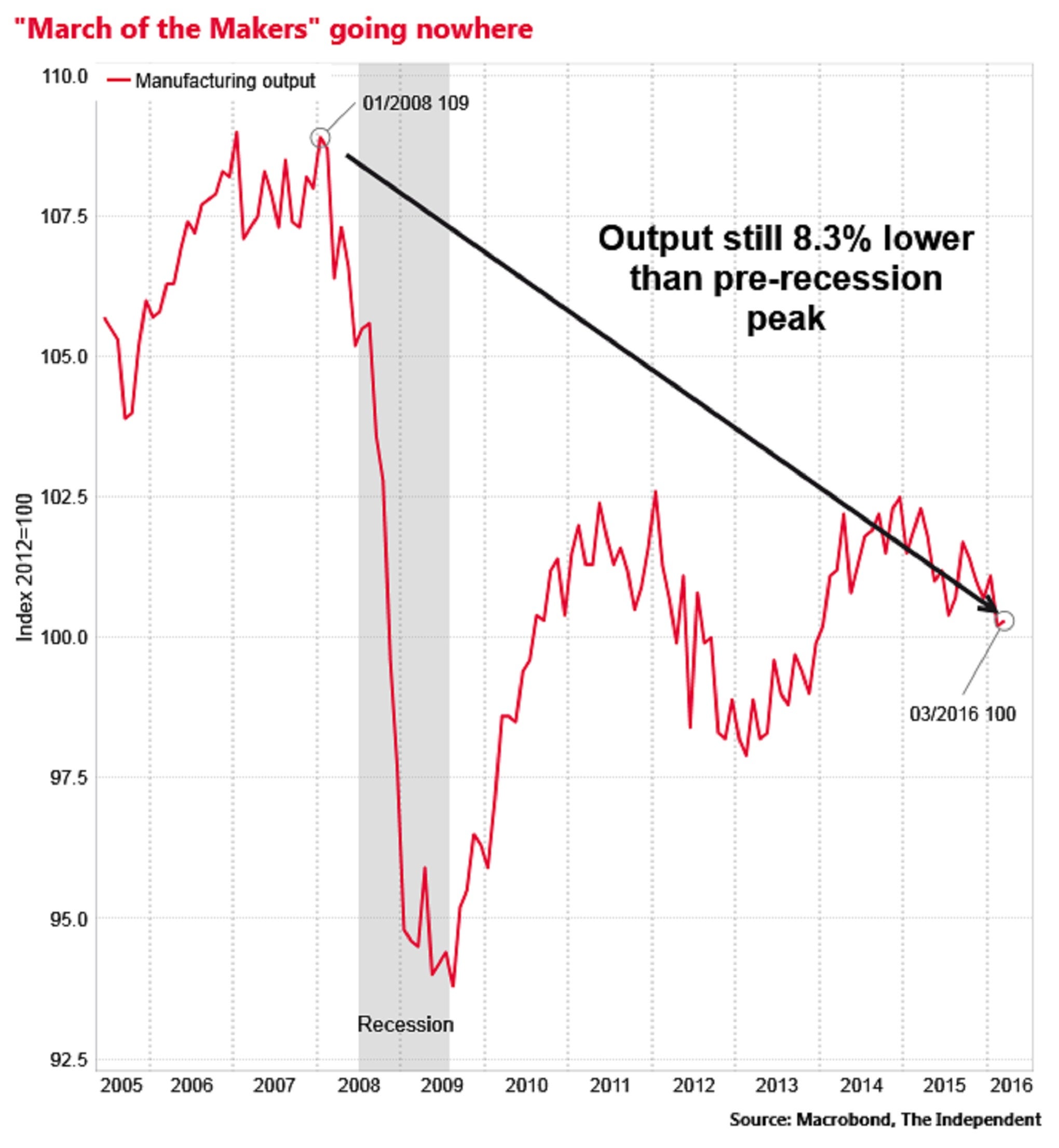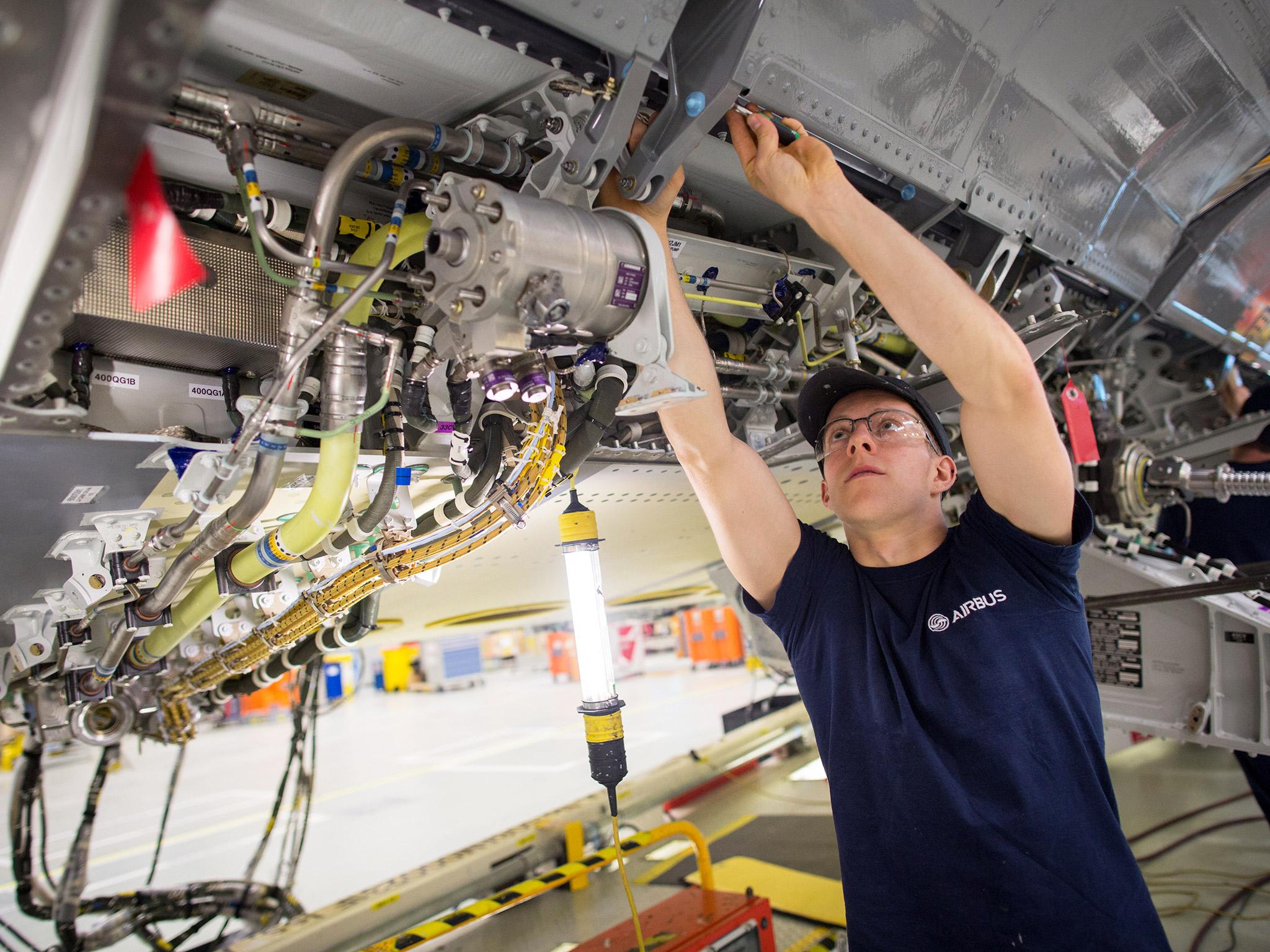Your support helps us to tell the story
From reproductive rights to climate change to Big Tech, The Independent is on the ground when the story is developing. Whether it's investigating the financials of Elon Musk's pro-Trump PAC or producing our latest documentary, 'The A Word', which shines a light on the American women fighting for reproductive rights, we know how important it is to parse out the facts from the messaging.
At such a critical moment in US history, we need reporters on the ground. Your donation allows us to keep sending journalists to speak to both sides of the story.
The Independent is trusted by Americans across the entire political spectrum. And unlike many other quality news outlets, we choose not to lock Americans out of our reporting and analysis with paywalls. We believe quality journalism should be available to everyone, paid for by those who can afford it.
Your support makes all the difference.The latest official manufacturing figures from the Office for National Statistics today where bad.
Output in March actually rose by 0.1 per cent. But that followed February's 0.9 per cent plunge. And over the first quarter of the year output from Britain's manufacturers sank by 1.96 per cent on the same quarter a year earlier. That's the biggest annual fall since the final three months of 2012:

In the 2011 Budget George Osborne held out the prospect of a "March of the Makers".
But what the latest data makes clear beyond any doubt is that the march has gone nowhere:

Seven years after the end of the recession manufacturing output is still a dismal 8.3 per cent down on where it was.
This gap is not given the attention it deserves by commentators. One often hears that the trend path of GDP growth before the crisis was "unsustainable" because there was a finance bubble. This line is wielded to rebut claims that the economy is suffering from a chronic lack of demand today. Pumping up demand through state stimulus would merely produce inflation, we're told.
But in 2008 manufacturers were able to produce a level of output 8 per cent higher than today with no discernible inflationary pressures. For Britain's "makers", the main problem is plainly a lack of demand, both here in Britain and the rest of the world.

Join our commenting forum
Join thought-provoking conversations, follow other Independent readers and see their replies
Comments